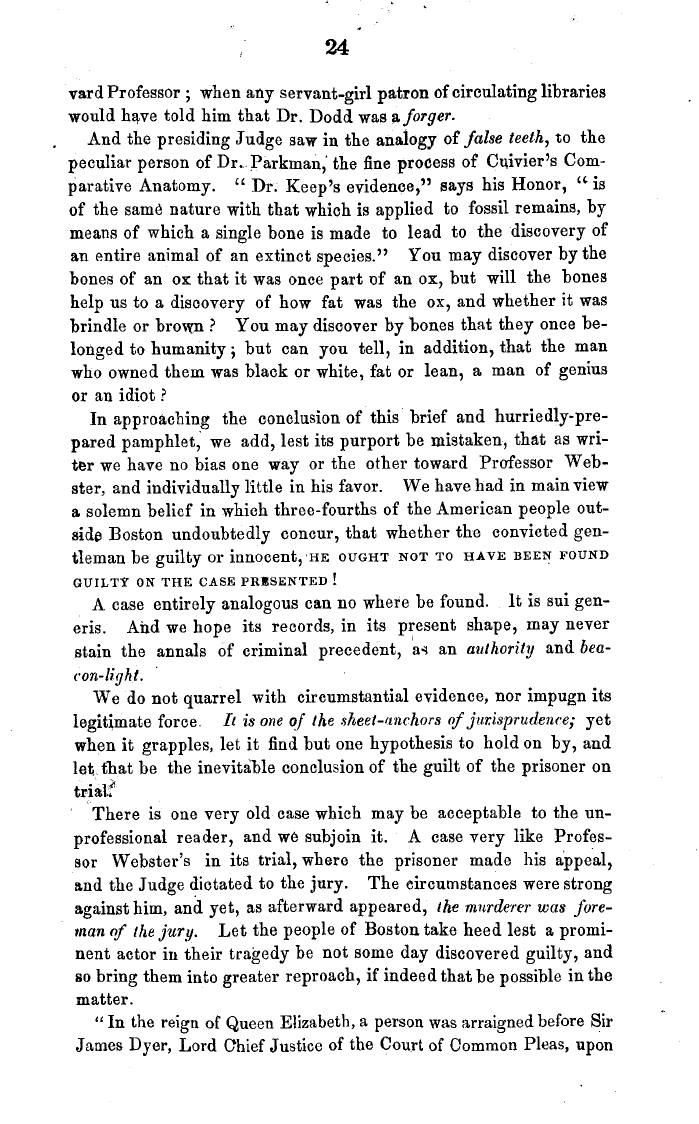|
vard Professor ; when any servant-girl patron of circulating libraries
would have told him that Dr. Dodd was a forger.
. And the presiding Judge saw in the analogy of false teeth, to the
peculiar person of Dr...Parkman; the fine process of Cuivier's Com-
parative Anatomy. " Dr. Keep's evidence," says his Honor, " is
of the sam6 nature with that which is applied to fossil remains, by
means of which a single bone is made to lead to the discovery of
an entire animal of an extinct species." You may discover by the
bones of an ox that it was once part of an ox, but will the bones
help us to a discovery of how fat was the ox, and whether it was
brindle or brown ? You may discover by bones that they once be-
longed to humanity; but can you tell, in addition, that the man
who owned them was black or white, fat or lean, a man of genius
or an idiot ?
In approaching the conclusion of this brief and hurriedly-pre-
pared pamphlet, we add, lest its purport be mistaken, that as wri-
ter we have no bias one way or the other toward Professor Web-
ater, and individually little in his favor. We have had in main view
a solemn belief in which three-fourths of the American people out-
side Boston undoubtedly concur, that whether the convicted gen-
tleman be guilty or innocent, HE OUGHT NOT To HAVE BEEN FOUND
GUILTY ON THE CASE PRESENTED I
A case entirely analogous can no where be found. It is sui gen-
eris. Aid we hope its records, in its present shape, may never
stain the annals of criminal precedent, ai an authority and bea-
con-light.
We do not quarrel with circumstantial evidence, nor impugn its
legitimate force. P is one of the sheet-anchors of jurisprudence; yet
when it grapples, let it find but one hypothesis to hold on by, and
let that be the inevitable conclusion of the guilt of the prisoner on
trial:
There is one very old case which may be acceptable to the un-
professional reader, and we subjoin it. A case very like Profes-
sor Webster's in its trial, where the prisoner made his appeal,
and the Judge dictated to the jury. The circumstances were strong
against him, and yet, as afterward appeared, the murderer was fore-
man of the jury. Let the people of Boston take heed lest a promi-
nent actor in their tragedy be not some day discovered guilty, and
so bring them into greater reproach, if indeed that be possible in the
matter.
" In the reign of Queen Elizabeth, a person was arraigned before Sir
James Dyer, Lord Chief Justice of the Court of Common Pleas, upon
|

